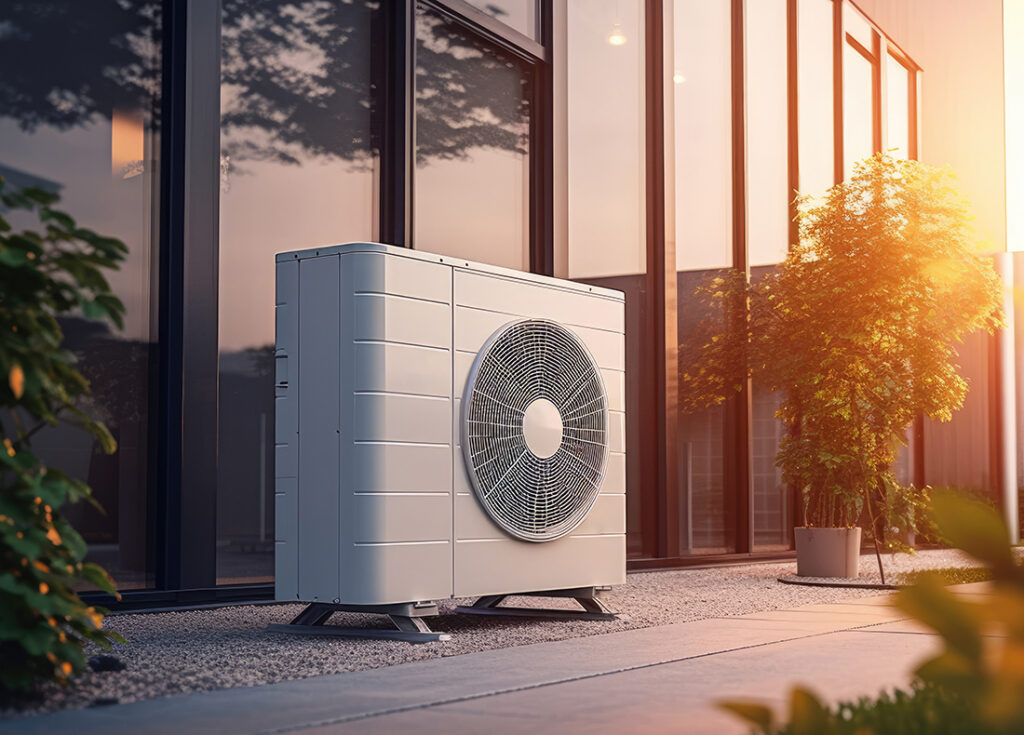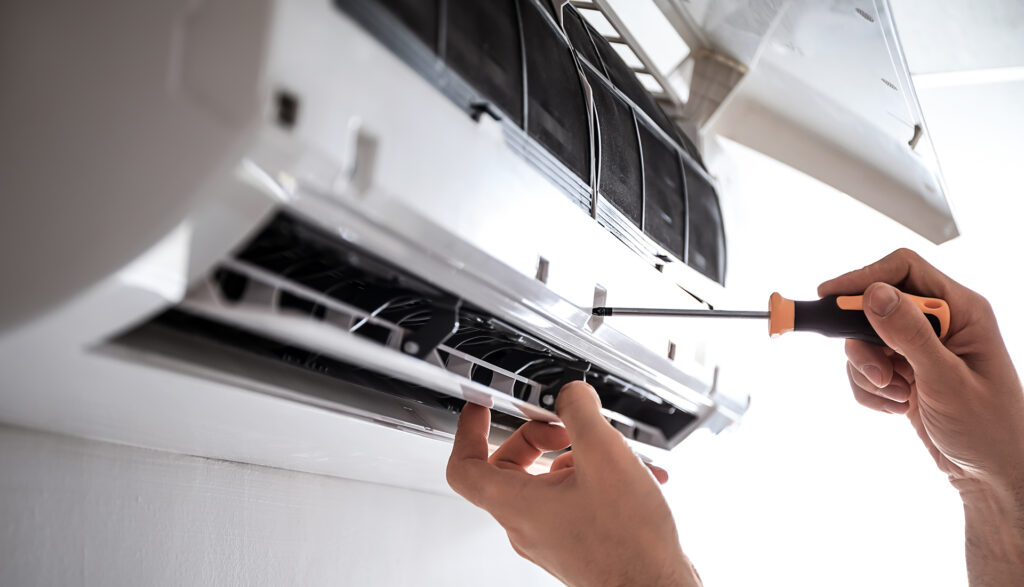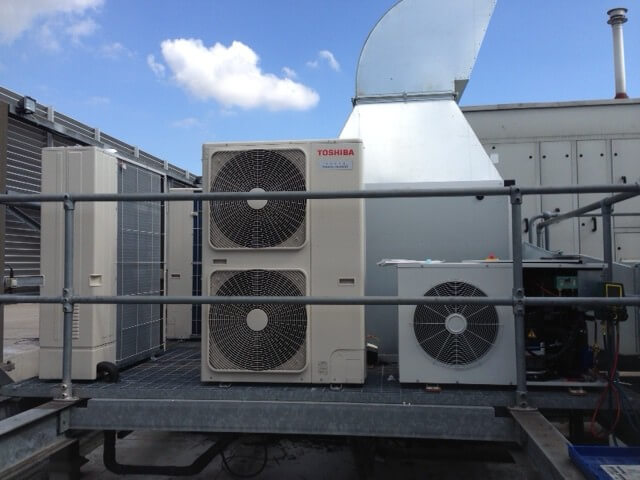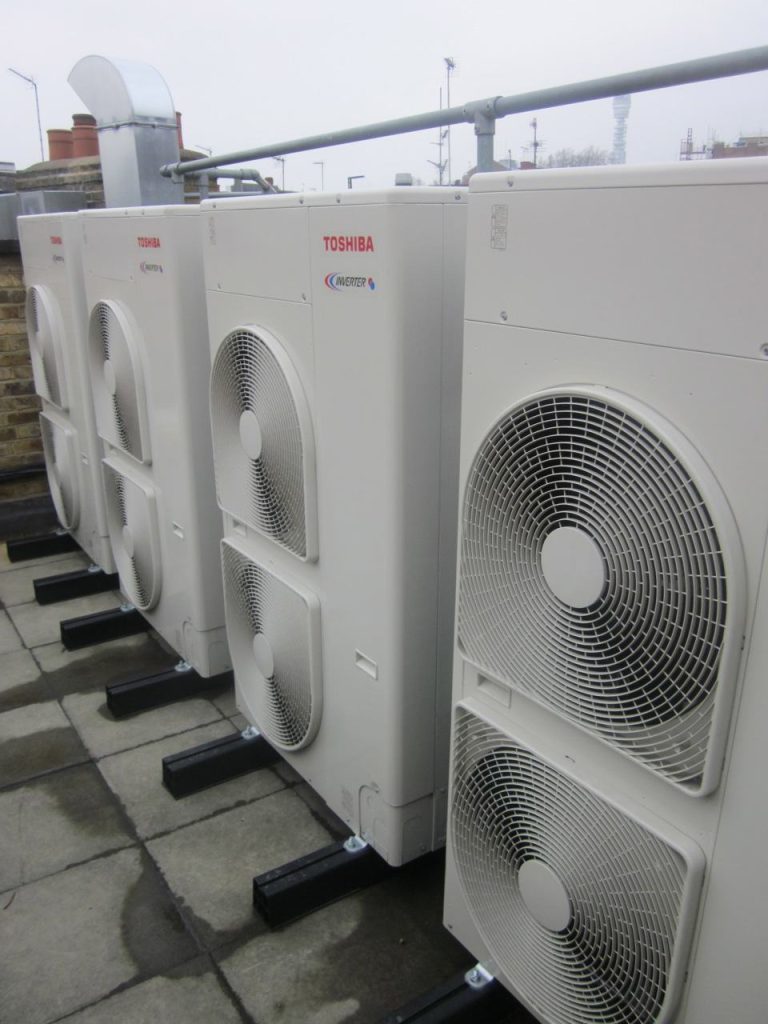Consequences of Neglecting Heating, Ventilation and Air Conditioning (HVAC) Maintenance
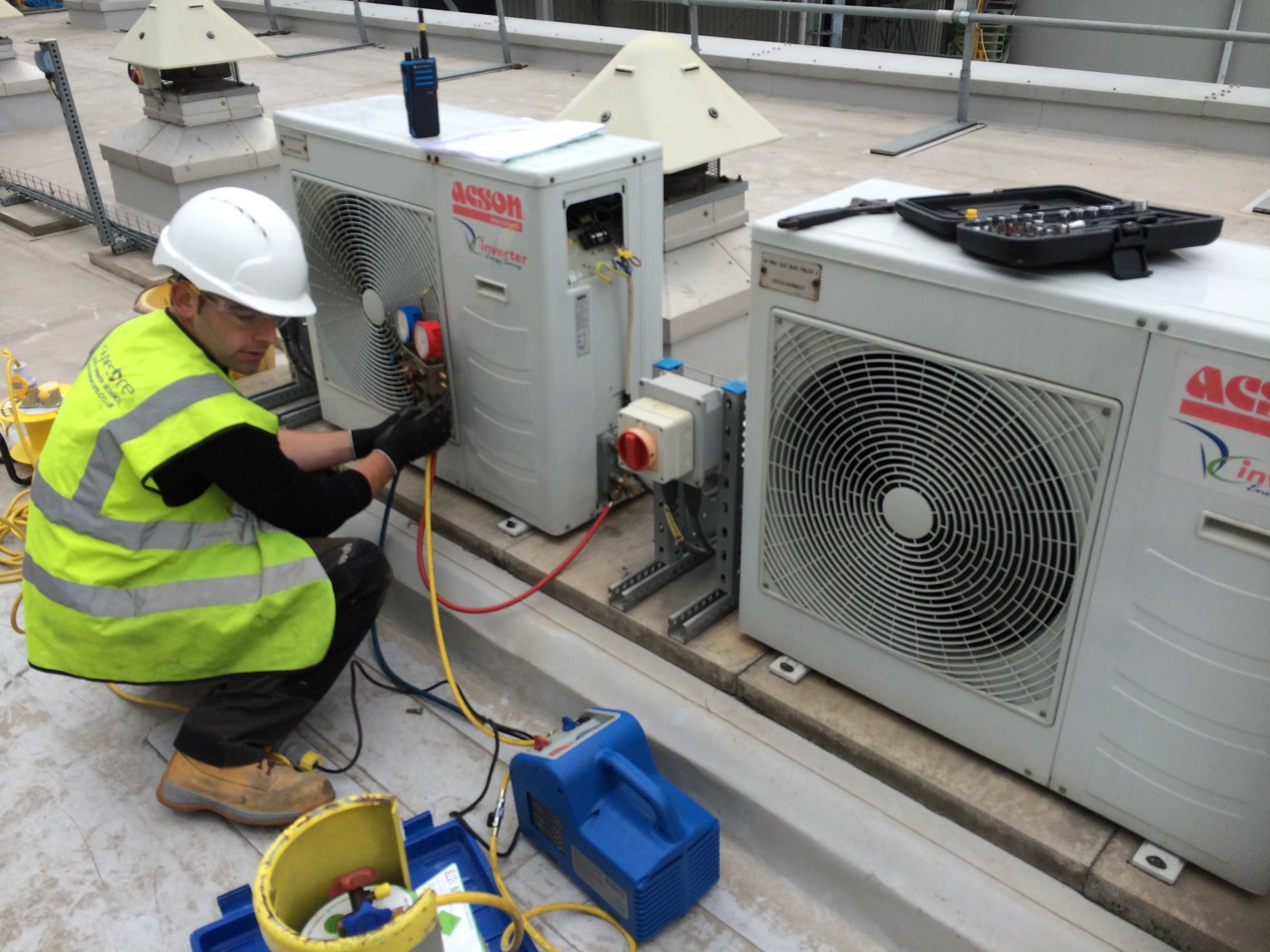
Estimated reading time 12 minutes
No matter the time of the year heating, ventilation and air conditioning (HVAC) maintenance should be a priority. This is especially true during those months when the temperature changes from cold to hot and hot to cold. During these periods your HVAC is having to work harder to maintain a comfortable indoor temperature.
HVAC systems are just like any other electrical system, they need to be properly maintained and serviced regularly. Failing to maintain your HVAC system can lead to a number of issues which in turn can cause breakdowns and costly repair bills. The last thing you need is to be faced with a freezing cold workplace at this time of year.
What Can Cause HVACs to Fail?
An HVAC is a complex system with many components and parts, all of which can breakdown. Below we outline the most likely elements of an HVAC that can fail.
Evaporator Coil
The evaporator coil is a key component of an HVAC system and plays an important role in the heat exchange process. The coil is responsible for absorbing the heat from inside the building. This is achieved as the coil transfers the heat to the refrigerant, turning the refrigerant from liquid to gas.
An evaporator coil can have problems if there is a build up of dust in the air filters. When air filters become blocked dust and dirt can start to accumulate on the evaporator coil which can act like an insulator preventing heat from being absorbed. If the coil becomes dirty and cannot absorb heat, there is a risk the coil may freeze over.
Signs that there are issues with your evaporator coil are the release of warm air from the vents when you’re expecting cooling air, starting and stopping without completing the cooling cycle, making strange noises, running longer that before and using more energy resulting in higher than expected energy bills.
Compressor
The compressor also plays a role in the heat exchange process. It’s responsible for “compressing” the refrigerant which causes the refrigerant temperature to rise and become a high-pressure gas which is sent to the condenser.
The compressor can break due to a number of factors including electrical failure, overheating, lowered refrigerant levels (refrigerant leak), lack of lubrication, condenser coil blockage, dirt and debris blocking the outside unit, contaminants and wear and tear.
Higher electricity bills may indicate that your compressor may be about to breakdown. As your compressor has to work harder it will draw more electricity as it tries to maintain the correct temperature. Loud noises or vibrations may also signal that the compressor is having trouble starting or that there are electrical issues.
Condenser Coil
The condenser coil is the counterpart to the evaporator coil. While the evaporator coil absorbs the heat from the indoor air the condenser coil releases the heat absorbed indoors and sends it outdoors lowering the temperature of the refrigerant and changing it back into a liquid as it goes through the expansion value, loses pressure and cools down. The cool refrigerant then travels back through the evaporator coil and the process repeats.
Condenser coils can suffer from corrosion. They can also become frozen due to a build-up of dirt and debris, low refrigerant levels or when airflow becomes restricted.
Your HVAC’s condenser coil may be on the verge of breaking down if there are abnormal noises like grinding or rattling, if your system is using more electricity as the coil’s efficiency deteriorates and if the air is still warm even when the thermostat is set low.
Condensate Drain
When an HVAC is operating condensate can accumulate. The condensate drain allows the condensate to drain out of the system, preventing excess moisture build up.
The condensate drain needs to be kept clear of debris. If the drain becomes clogged it can lead to a blockage causing water to accumulate within the HVAC system. Where moisture is present it can lead to water damage, increased humidity levels, the growth of mould and mildew which in turn will result in decreased air quality.
A buildup of water in the drain pan or HVAC as well as a musty smell can be some of the signs that your condensate drain is clogged.
Ductwork
The ductwork is responsible for moving the temperature-controlled air around your building of workplace and distributing it via vents.
Over time ducts can become damaged, seals can fail, and condensation can accumulate which in turn can lead to the build-up of dirt and dust. Leaking ducts can lead to other issues including damaged ceilings and walls as well as the growth of mould and mildew.
When ductwork starts to fail it can lead to a decrease in air quality and efficiency leading to higher energy bills.
Control Panel, Thermostat and Sensors
The control centre, thermostat and sensors provide the ability to set a desired indoor temperature and to monitor and automatically adjust the temperature according to the temperature set. They control when your heating and air conditioning system turns on and off based on your preferred settings.
Like any electrical system the control panel, thermostat and sensors components can breakdown or develop faults. When this happens, you may find that your HVAC “short cycles” i.e. turns on and off rapidly or runs almost nonstop and never seems to complete a full cooling cycle, the space seems warmer or colder than the temperature set or different areas are at different temperatures, or you suddenly experience a cooling system failure. Control panel, thermostat and sensor issues can also have an impact on the lifespan of your HVAC system and drive up the cost of your energy bills.
Filters
An HVAC system has filters which help to keep the system clean and filter out dust, dirt, pollen and other particulate matter from the air before it enters the HVAC system and is circulated throughout the building.
When the filters themselves become clogged with the build up of dirt and dust this can cause your HVAC to work harder to maintain the set room temperature and to filter the air. This in turn can lead to increased wear and tear within the system as a whole and overheating.
When HVAC filters become clogged it can mean uneven or poor temperature control, an increase in dust, burning smells, short cycling and higher electricity bills.
Refrigerant
HVAC systems use refrigerant. Heating, ventilation and air conditioning is based on a simple scientific principle. When a liquid changes to a gas it results in the absorption of heat. Air conditioning uses this principle by pumping refrigerants through a compressor and forcing the refrigerant (which has properties enabling it to change at relatively low temperatures) to evaporate and condense again and again in a condenser in a closed system of evaporator coils. The refrigerant then transfers the heat from the inside air to the outside air maintaining the building at a steady temperature. The refrigerant then flows back to the compressor where the cycle starts over again.
It’s vital that an HVAC system has the right amount of refrigerant. If the level of refrigerant falls, then your system is likely to have a leak which is a very serious issue, can cause damage and which will affect the performance the HVAC system. In fact, if you suspect you have a refrigerant leak you must call a professional air conditioning engineer. It’s vital to identify how refrigerant is escaping and once the leak is identified and repairs are carried out any lost refrigerant should be replaced.
It's clear that HVAC maintenance is vital to ensure the efficient and effective running of an HVAC system. If your HVAC system isn’t being regularly maintained, it can lead to break downs which could potentially have a devasting impact on your business. Below are some of the many benefits that come from properly maintaining an HVAC system.
Key Benefits of HVAC Planned Preventative Maintenance
Longer Lifespan. Like any piece of equipment when an HVAC is regularly maintained its lifespan is extended. The typical air conditioning system lifespan is typically to around 7-10 years. After this time your HVAC will probably start to have an increasing number of problems. Planned maintenance will detect issues in advance especially if it’s scheduled regularly. By stopping component failures or by diagnosing potential issues early and resolving them you will extend the lifespan of your HVAC system.
Improved Energy Efficiency. When your HVAC is experiencing problems its likely to be using more energy as it has to work harder to maintain the temperature set due to poor performance and efficiency issues. Planned preventative maintenance can address the energy efficiency of your HVAC and ensure that all parts of the system are working efficiently and effectively to lower your energy costs.
Reduced Repair Costs. Whereregular HVAC maintenance isn’t carried out component failures are expected. Replacing parts can be costly and when there are multiple failures, or where a failing part impacts a perfectly good part costs can increase. By keeping on top of maintenance, issues are more likely to be detected, and component failures prevented.
Consistent Performance. An HVAC system is complex and made up of many parts, any of which can fail. When one HVAC component fails it can in turn affect other parts of the system leading to bigger problems and more costly repairs. By stopping your air conditioning from malfunctioning you can also prevent subsequent problems or parts from becoming damaged. Regular maintenancecan help to diagnose problems and prevent future breakdowns and downtime leading to the consistent performance of an HVAC system. In fact, Samsung reports that “With regular servicing a unit will maintain up to 95% of its original efficiency. This means that the cost of a regular service is quickly recovered in savings on your monthly electricity bill and in reduced repair costs.” When your HVAC is properly maintained you can be sure that your building‘s temperature, humidity and air quality will all be reliably controlled.
Consistent Temperature, Humidity and Air Quality. When your HVAC is performing as it should you know that it can be relied on to maintain the temperature set via your control panel or thermostat no matter the temperature outdoors.
Better Air Quality. HVACs play a major role in keeping the air clean within a building thereby improving the air quality. HVAC filters remove the air of dust, dirt, pollen, other particulate matter and irritants which find their way into a building. Without an air conditioning system people often resort to opening windows which can allow pollen and dust and dirt to find their way into your office or building. As long as an HVAC is well maintained, filters are cleaned or replaced as required then your HVAC will filter out particulates and dust, keeping the air clean.
Reduced Health Risks. With better air quality comes reduced health risks. An HVAC can play a vital role in reducing allergies and respiratory conditions like asthma.Poor ventilation is believed to be one of the major contributors to Sick Building Syndrome (SBS). A good step in trying to prevent or treat SBS is by improving your building’s indoor air quality.
Maintaining Your Building. By maintaining your HVAC, you are also maintaining your building structure and integrity by controlling the temperature and humidity. When an HVAC isn’t performing as it should it can result in frozen pipes or the build-up of moisture which can lead to damp and the growth of mould and mildew. An HVAC performing efficiently will maintain the right indoor temperature, clean and dehumidify the air.
The Law. Refrigerant based systems with a CO2 equivalent charge weight over 5 tonnes need to ensure they comply with current legislative requirements. Part of complying with regulations and legislation must include regular inspections and air conditioning maintenance.
Peace of Mind. When your HVAC is running smoothly its one less thing for you and your business to worry about. With planned preventative maintenance, you can leave your HVAC in the hands of the experts knowing that if there is an issue help is at hand to resolve any problems, prevent breakdowns and keep your HVAC system running smoothly.
Expert Heating, Ventilation and Air Conditioning Installation and Support
Syncore is an expert in air conditioning, heating and ventilation design and installation and can install air conditioning and heating, ventilation and air conditioning (HVAC), and heat pumps throughout London and the wider UK.
Synecore offers a commercial air conditioning Planned Preventative Maintenance (PPM) service, from inspecting the system to look for any issues; to checking the control panel, thermostat settings and sensors, electrical connections and ductwork to changing the filters and cleaning the condenser and evaporator coils to looking for leaks, lubricating moving parts and fully testing the system. All PPM packages are tailor made for your business and are dependent on the size of the premises and the AC installed. As part of the PPM air conditioning package Synecore schedules site visits throughout the year to keep your HVAC performing at peak efficiency. The PPM package ensures your equipment is back up and running as soon as possible. Our customers receive high priority status for any air conditioning breakdowns and repairs, with an engineer onsite within hours of the fault being reported.
If you are looking to install a new heating, ventilation and air conditioning installation or heat pump or need to replace an old system, contact our team or call on 01795 509 509. We’ll talk you through your options and provide you with expert advice on the right heating, ventilation and air conditioning system for you.
